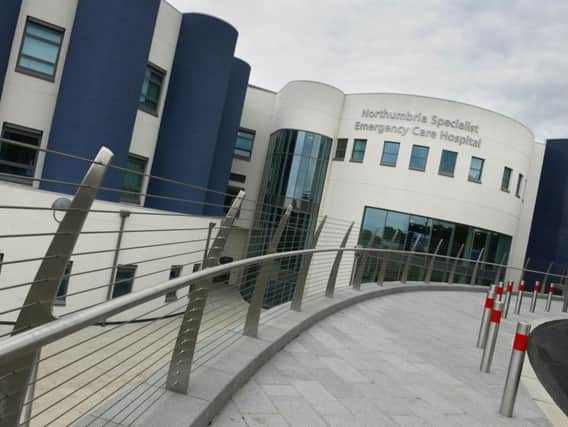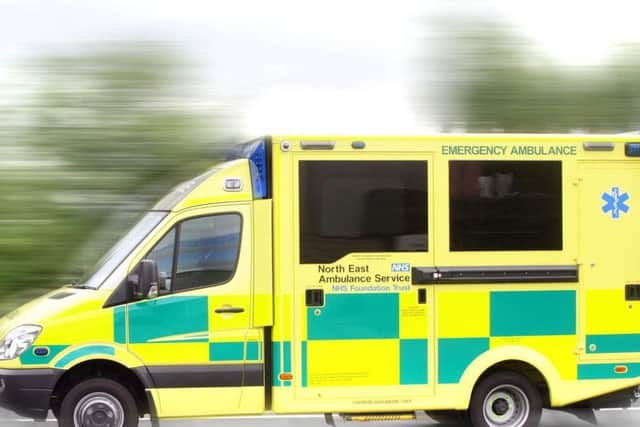Hundreds of Northumbria emergency patients forced to wait up to an hour in queuing ambulances


The NHS has released statistics concerning Northumbria Healthcare NHS Foundation Trust as part of a special series which highlights the winter pressures facing the health service.
The figures show that in December 311 of the trust's patients had to spend between half-an-hour and an hour waiting in an ambulance at hospital, or with paramedics outside A&E, before they could be transferred to the emergency department. And 105 remained in the care of paramedics for more than 60 minutes.


NHS England's target time is up to 15 minutes.
Advertisement
Hide AdAdvertisement
Hide AdThe waits, known as handover delays, can be due to ambulance queues or slow processing at hospitals and can have the knock-on effect of delaying paramedics being despatched to future emergencies.
In total, 8.6% of all patients arriving by ambulances at hospital were delayed by between 30 and 60 minutes.
In the week from Christmas to New Year's Eve, there were 89 delays of between 30 and 60 minutes, and 34 incidents where patients were waiting for more than an hour.


Wednesday, December 27, was the worst day for delays, with 21 patients waiting in ambulances for between 30 and 60 minutes.
Advertisement
Hide AdAdvertisement
Hide AdThe Department of Health said ambulance crews should be able to hand patients over to A&E staff within the 15-minute target time.
It said not doing so increases the risk to patients due to delays in diagnosis and treatment, as well as the chance that a patient will get worse while waiting on a trolley.
The figures are likely to cause concern as doctors and hospital leaders have claimed the current NHS winter crisis is the worst in decades.
NHS England instructed hospitals to move all non-urgent operations to after January 31 to free up beds and staff.
Advertisement
Hide AdAdvertisement
Hide AdEmergency medicine consultant Dr Adrian Boyle, chairman for quality at the Royal College of Emergency Medicine, said: "Everybody is struggling at the moment."
He told Press Association: "Every type 1 emergency department that I know of is under serious and sustained pressure. It feels worse than the equivalent period last year.
"This means that ambulances are waiting outside emergency departments waiting to offload, the emergency departments are full, clinical staff are working extremely hard to try to look after these patients, often having to treat patients in corridors, people suffering lengthy delays.
"And we know that excessive crowding within emergency departments is associated with avoidable deaths."
Health Secretary Jeremy Hunt apologised to patients for the wave of cancellations, saying it was 'absolutely not what I want'.